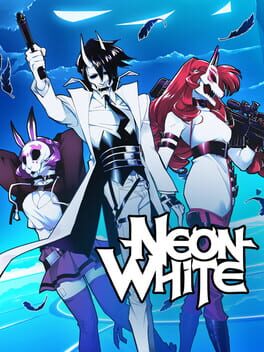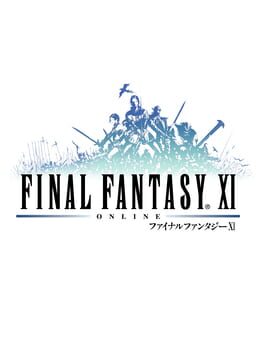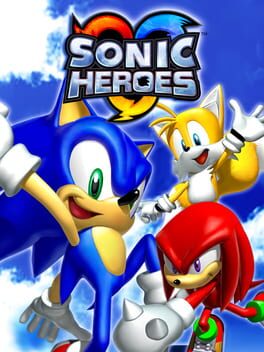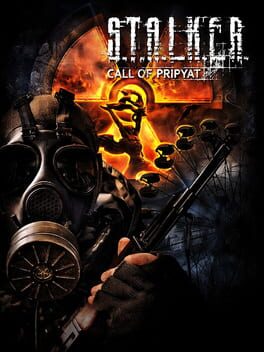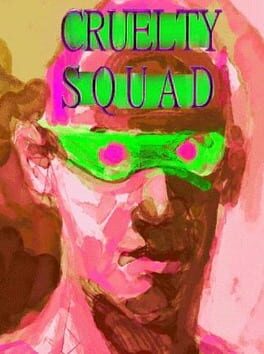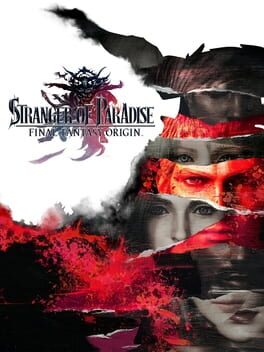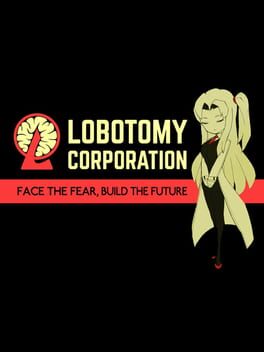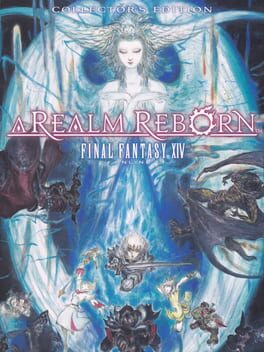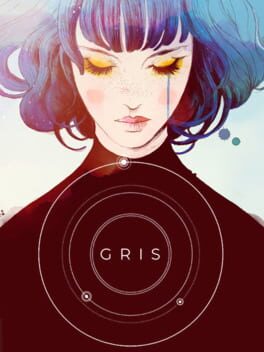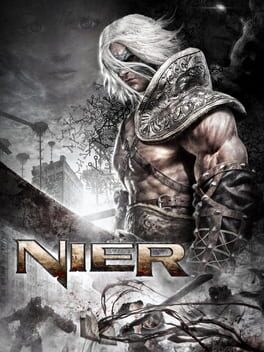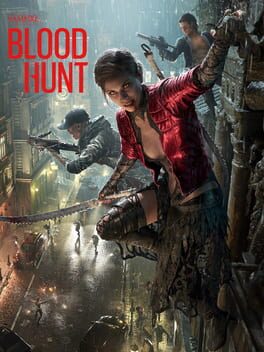straylight
2009
There is a truly perfect game in here, somewhere within the knots and tangles of its narrative presentation - but alas, it exists in its current state as simply a very good one.
Still, I'm not going to complain about playing a great game! I think a lot of the critiques of FFXIII are more-or-less misguided, as I ended up either having no problems at all with or actively loving the parts that everybody complains about - namely the codex and the combat system. The codex means you have to stop every few hours to stop and read about the world, which isn't a problem to me because the world is so interesting. The gameplay is probably the best in the mainline Final Fantasy series (having finally perfected the ATB system after nearly two decades!) and is refreshingly hard, a surprise in a series known for being pretty easy to breeze through.
With this being said: there aren't many problems with FFXIII, but one of them is big enough to seriously dilute the experience. You hear a lot of people complain about the linearity but that really isn't the problem - the problem is that in a game so linear it still manages to have really poor pacing that simultaneously feels too slow and too fast. FFXIII is nothing without its characters and their internal conflicts, which are very well written and mesh with one another in a way that is perfect for the kind of story FFXIII is trying to tell. Problem is that the characters are exposited and fleshed out in a really rapid-fire way with so little downtime that all character development feels very abrupt and lacking in weight - it's more or less one dramatic scene and huge character moment after another, and as characters progress through their varying states of being it feels like you never get to really know who they are before you meet who they're becoming. Couple that with all of the actual plot developments and crucial world information being saved for the last five-or-so hours of the game and you have a story that feels rushed and way too slow at the same time - all of this only weighed down more heavily by bizarre and inexplicable difficulty spikes that leave you lingering further on moments that already overstay their welcome.
Even so, FFXIII is just a marvelous game to sit and exist in. The dual settings of Coccoon and Pulse are every bit as lively as they are beautiful - this is by far the prettiest game I've ever played both in terms of art direction and graphical fidelity, which is impressive considering this game came out in 2009 - and the atmosphere is bolstered even further by the phenomenal soundtrack. As poorly paced as the characters' personal arcs are, they're still extremely well-written on the whole and are all charming, likeable and memorable, with some seriously gripping character dynamics and relationships. Even when the writing's own convolution fails it, the Big Moments are delivered with a palpable heart-and-soul that I've only been really able to find in Final Fantasy games developed with Yoshinori Kitase and his usual posse at the helm. There were several moments in FFXIII that made me stop and remember why Final Fantasy is my favorite series, having been immersed in an intangible feeling you can really only get from this series (and Kitase's games in particular).
With themes, ideas, and characters this tight - as well as a near-perfect combat system - I imagine that with time the mess of FFXIII's presentation will long be overshadowed by the finesse of its actual substance in my mind, and that I'll only grow more and more fond of it as the years pass by.
Still, I'm not going to complain about playing a great game! I think a lot of the critiques of FFXIII are more-or-less misguided, as I ended up either having no problems at all with or actively loving the parts that everybody complains about - namely the codex and the combat system. The codex means you have to stop every few hours to stop and read about the world, which isn't a problem to me because the world is so interesting. The gameplay is probably the best in the mainline Final Fantasy series (having finally perfected the ATB system after nearly two decades!) and is refreshingly hard, a surprise in a series known for being pretty easy to breeze through.
With this being said: there aren't many problems with FFXIII, but one of them is big enough to seriously dilute the experience. You hear a lot of people complain about the linearity but that really isn't the problem - the problem is that in a game so linear it still manages to have really poor pacing that simultaneously feels too slow and too fast. FFXIII is nothing without its characters and their internal conflicts, which are very well written and mesh with one another in a way that is perfect for the kind of story FFXIII is trying to tell. Problem is that the characters are exposited and fleshed out in a really rapid-fire way with so little downtime that all character development feels very abrupt and lacking in weight - it's more or less one dramatic scene and huge character moment after another, and as characters progress through their varying states of being it feels like you never get to really know who they are before you meet who they're becoming. Couple that with all of the actual plot developments and crucial world information being saved for the last five-or-so hours of the game and you have a story that feels rushed and way too slow at the same time - all of this only weighed down more heavily by bizarre and inexplicable difficulty spikes that leave you lingering further on moments that already overstay their welcome.
Even so, FFXIII is just a marvelous game to sit and exist in. The dual settings of Coccoon and Pulse are every bit as lively as they are beautiful - this is by far the prettiest game I've ever played both in terms of art direction and graphical fidelity, which is impressive considering this game came out in 2009 - and the atmosphere is bolstered even further by the phenomenal soundtrack. As poorly paced as the characters' personal arcs are, they're still extremely well-written on the whole and are all charming, likeable and memorable, with some seriously gripping character dynamics and relationships. Even when the writing's own convolution fails it, the Big Moments are delivered with a palpable heart-and-soul that I've only been really able to find in Final Fantasy games developed with Yoshinori Kitase and his usual posse at the helm. There were several moments in FFXIII that made me stop and remember why Final Fantasy is my favorite series, having been immersed in an intangible feeling you can really only get from this series (and Kitase's games in particular).
With themes, ideas, and characters this tight - as well as a near-perfect combat system - I imagine that with time the mess of FFXIII's presentation will long be overshadowed by the finesse of its actual substance in my mind, and that I'll only grow more and more fond of it as the years pass by.
2022
Ben Esposito refers to Neon White as a "game for freaks." One would assume that this game is meant to appeal to social outcasts, rejects, or at the very least those with very specific and esoteric tastes. Instead Neon White panders to the lowest common denominator of anime fans that dominate spaces like Twitter and Reddit - who are indeed freaks, though likely not the "cool" kind of freaks that Esposito is attempting to appeal to.
The gameplay is fun! A bit floaty, but not enough that the moment-to-moment platforming suffers. The process of learning levels to optimize your time and get an Ace rank is incredibly addicting. In spite of being a single-player game there is an undeniable communal aspect if you're playing with friends, since the PC version compares your scores to those of your Steam friends - a lot of the appeal to me is running levels over and over again to try and best your friends' scores. The levels are gorgeous, intuitively designed while remaining complex enough for optimization, and over in less than thirty seconds. The music is fantastic and the presentation (my distaste for the VN format aside) is spectacular.
Thus comes the elephant in the room: the writing. Abysmal on every single front, an endless fount of regurgitated memes originating from the "Anitwt" community on Twitter only to be reposted and recycled onto the countless cesspools of Reddit. You can't go twenty seconds without hearing a buzzword or in-joke, and in the rare moments without talking about characters' breasts, making John Cena jokes or name-dropping Naruto characters you'll find it hard to take the characters and their dialogue seriously for the simple fact that nobody talks like this. If anything it's only accentuated by the fact that the voice acting is really great (Steve Blum voices the title character!) and the actors are giving it their all with every line, struggling to wring emotion and depth out of dialogue that simply has none to offer.
I don't have anything to say about the plot because I don't care and I'm probably going to skip it from here on out. The only comment I have about the dating sim elements is that the Persona series and its consequences have been a disaster for the human race.
Overall a really fun game if you skip the cutscenes and pretend it's just a bunch of floating levels in a void with no context or narrative presentation!
The gameplay is fun! A bit floaty, but not enough that the moment-to-moment platforming suffers. The process of learning levels to optimize your time and get an Ace rank is incredibly addicting. In spite of being a single-player game there is an undeniable communal aspect if you're playing with friends, since the PC version compares your scores to those of your Steam friends - a lot of the appeal to me is running levels over and over again to try and best your friends' scores. The levels are gorgeous, intuitively designed while remaining complex enough for optimization, and over in less than thirty seconds. The music is fantastic and the presentation (my distaste for the VN format aside) is spectacular.
Thus comes the elephant in the room: the writing. Abysmal on every single front, an endless fount of regurgitated memes originating from the "Anitwt" community on Twitter only to be reposted and recycled onto the countless cesspools of Reddit. You can't go twenty seconds without hearing a buzzword or in-joke, and in the rare moments without talking about characters' breasts, making John Cena jokes or name-dropping Naruto characters you'll find it hard to take the characters and their dialogue seriously for the simple fact that nobody talks like this. If anything it's only accentuated by the fact that the voice acting is really great (Steve Blum voices the title character!) and the actors are giving it their all with every line, struggling to wring emotion and depth out of dialogue that simply has none to offer.
I don't have anything to say about the plot because I don't care and I'm probably going to skip it from here on out. The only comment I have about the dating sim elements is that the Persona series and its consequences have been a disaster for the human race.
Overall a really fun game if you skip the cutscenes and pretend it's just a bunch of floating levels in a void with no context or narrative presentation!
I have so much to say about this one that I don't know how to structure it in a coherent or meaningful way, so I'll try to keep it short. This is exclusively for the base game; I'll record my thoughts on the expansions separately.
Final Fantasy XI strikes a balance between the traditional simple writing of classic JRPGs (like the first five Final Fantasy games) and the thematic density that defined the JRPGs of the late 90s (like the five Final Fantasy games that came before it). What it lacks in character writing, it makes up for in the strength of its themes and a hyper-sharp focus on the single most important part of any MMO: the world.
Vana'diel as a setting is the true main character of Final Fantasy XI, and every aspect of the game is sculpted in a way that strengthens its distinct feel. Vana'diel wouldn't feel the same without the game's trademark extreme difficulty, nor the somber and mournful tone of the lore, nor the otherworldly ambiance that permates the very act of simply existing in one of the game's many enormous zones. In many ways I feel as if playing the game solo in what is effectively a dead server only intensified this experience; much of Final Fantasy XI is shaped around the idea of Vana'diel's permanent change (or lack thereof) in the wake of a cataclysmic event that changed the world forever. When wandering around alone in the remains of what was once a trailblazing title in the MMO sphere, one's connection with Vana'diel's ever-present sense of sorrow and loss is only intensified: there was once something lively and prosperous here, only to wither away until it and its inhabitants manage to simply skirt on by.
Masato Kato's writing accentuates this feeling; he builds on many of the same themes, ideas and messages as in his previous title Chrono Cross (My Favorite Game Of All Time Btw) while managing to convey them using a more streamlined and conventionally-coherent plot structure. Admittedly the mechanical structure of the game hampers the impact of these ideas a bit (as much as Kato loves to write about the plight of wildlife and beastfolk in JRPGs, it's hard to take it at face value when slaughtering them en masse is the most efficient way to level your jobs), but they're so resonant with the identity of Vana'diel as a world that I can't help but commend them.
FFXI's gameplay is more than anything defined by being bullshit. Sometimes it's bullshit in a charming and endearing way that one can approach like a puzzle and others it's bullshit in a way that's just sort of poorly designed. Again - not to downplay how frustrating it can be, which is often - this just works for what it is: Vana'diel is a hostile, unpredictable and dangerous world defined by conflict. To exist within it is to not know what awaits around the corner, and to accept that prosperity is equally likely to come as a swift death.
It's such a unique gamefeel that I can't really describe it but I think everything about it works together to make something that is very singular and unique even today. While the sense of thriving community is gone, the experience of wandering in what remains of it persists and lives on as Final Fantasy XI's primary attraction.
This change defines Final Fantasy XI in the current day and age, much like Vana'diel is defined by the lingering effects of the war that tore it asunder.
Final Fantasy XI strikes a balance between the traditional simple writing of classic JRPGs (like the first five Final Fantasy games) and the thematic density that defined the JRPGs of the late 90s (like the five Final Fantasy games that came before it). What it lacks in character writing, it makes up for in the strength of its themes and a hyper-sharp focus on the single most important part of any MMO: the world.
Vana'diel as a setting is the true main character of Final Fantasy XI, and every aspect of the game is sculpted in a way that strengthens its distinct feel. Vana'diel wouldn't feel the same without the game's trademark extreme difficulty, nor the somber and mournful tone of the lore, nor the otherworldly ambiance that permates the very act of simply existing in one of the game's many enormous zones. In many ways I feel as if playing the game solo in what is effectively a dead server only intensified this experience; much of Final Fantasy XI is shaped around the idea of Vana'diel's permanent change (or lack thereof) in the wake of a cataclysmic event that changed the world forever. When wandering around alone in the remains of what was once a trailblazing title in the MMO sphere, one's connection with Vana'diel's ever-present sense of sorrow and loss is only intensified: there was once something lively and prosperous here, only to wither away until it and its inhabitants manage to simply skirt on by.
Masato Kato's writing accentuates this feeling; he builds on many of the same themes, ideas and messages as in his previous title Chrono Cross (My Favorite Game Of All Time Btw) while managing to convey them using a more streamlined and conventionally-coherent plot structure. Admittedly the mechanical structure of the game hampers the impact of these ideas a bit (as much as Kato loves to write about the plight of wildlife and beastfolk in JRPGs, it's hard to take it at face value when slaughtering them en masse is the most efficient way to level your jobs), but they're so resonant with the identity of Vana'diel as a world that I can't help but commend them.
FFXI's gameplay is more than anything defined by being bullshit. Sometimes it's bullshit in a charming and endearing way that one can approach like a puzzle and others it's bullshit in a way that's just sort of poorly designed. Again - not to downplay how frustrating it can be, which is often - this just works for what it is: Vana'diel is a hostile, unpredictable and dangerous world defined by conflict. To exist within it is to not know what awaits around the corner, and to accept that prosperity is equally likely to come as a swift death.
It's such a unique gamefeel that I can't really describe it but I think everything about it works together to make something that is very singular and unique even today. While the sense of thriving community is gone, the experience of wandering in what remains of it persists and lives on as Final Fantasy XI's primary attraction.
This change defines Final Fantasy XI in the current day and age, much like Vana'diel is defined by the lingering effects of the war that tore it asunder.
2003
Never finished this one in spite of countless complete playthroughs of Shadow of Chernobyl.
I feel as if this game is lacking in the sense of isolation that the Zone's nature as an every-man-for-himself wasteland imparts onto the player experience -- the Major having official military backing and a stated purpose in coming to the Zone is a far cry from the Marked One's lack of direction, belonging, or identity without even a name to call his own.
STALKER lives and dies by its atmosphere, and with this one's being much less distinct and lacking in the ever-present sense of sorrow that permeates Shadow of Chernobyl... well, I find it much more hard to be engaged with.
I feel as if this game is lacking in the sense of isolation that the Zone's nature as an every-man-for-himself wasteland imparts onto the player experience -- the Major having official military backing and a stated purpose in coming to the Zone is a far cry from the Marked One's lack of direction, belonging, or identity without even a name to call his own.
STALKER lives and dies by its atmosphere, and with this one's being much less distinct and lacking in the ever-present sense of sorrow that permeates Shadow of Chernobyl... well, I find it much more hard to be engaged with.
2021
cruelty squad understands what made shooters from the mid-90s to early 00s so distinct and special better than pretty much every other so-called boomer shooter revival game: a combination of weird atmosphere, uncanny map design, and a genuine sense of mystery and crypticism that eventually payoff in discovery and reward. secrets feel like secrets in an old-timey sense, the way they're all buried away and provided without fanfare or notification that they're supposed to be secrets. it encourages you to explore, which in turn makes you get the most out of the (mostly) super tight level designs
i feel like people overstate the grossout/poor graphics aesthetic. that stuff is all there in spades but acting as if that's the game's main selling point kind of sells the game short - the gameplay and game design, atmosphere, themes and even the bits-and-pieces of story and capital l Lore are all really, really solid. you hear a lot about the "tactical shooter" angle but i was pleasantly surprised to find out how much this game encourages, accomodates and necessitates FPS Shit like bunny hopping, surfing, rocket jumping and wall jumping and makes it work with the slow, methodical, routing-and-planning emphatic aspect of things. this game has Schmovement and it's good! it's just real, real good
mostly, anyways. the level designs can be a little bit inconsistent (it's mostly the big, wide-open levels that suffer, as i feel cruelty squad is at its best when things are small, compact, and tightly designed with every run through exposing a new possible plan of action for your next run), and flesh rats are fucking bullshit and seem to exist only to make you rely on rote memorization instead of knowing the level well enough to improv as obstacles necessitate, which most of the gameplay otherwise focuses on and excels at.
the plot, lore, themes, ideas, etc. are all super interesting too but i think i need to digest them and think about them a bit more before i have anything meaningful to say about them. they're pretty obfuscated and delivered with very opaque and dense prose that almost kind of reminds me of the stilted and imperfect english that the original quake used? just on the opposite side of the spectrum, a lot more verbose and eloquent than i was expecting
for once i have more to say about the gameplay than i do about the writing. they're both good. really, really good. it's just a really good game
i feel like people overstate the grossout/poor graphics aesthetic. that stuff is all there in spades but acting as if that's the game's main selling point kind of sells the game short - the gameplay and game design, atmosphere, themes and even the bits-and-pieces of story and capital l Lore are all really, really solid. you hear a lot about the "tactical shooter" angle but i was pleasantly surprised to find out how much this game encourages, accomodates and necessitates FPS Shit like bunny hopping, surfing, rocket jumping and wall jumping and makes it work with the slow, methodical, routing-and-planning emphatic aspect of things. this game has Schmovement and it's good! it's just real, real good
mostly, anyways. the level designs can be a little bit inconsistent (it's mostly the big, wide-open levels that suffer, as i feel cruelty squad is at its best when things are small, compact, and tightly designed with every run through exposing a new possible plan of action for your next run), and flesh rats are fucking bullshit and seem to exist only to make you rely on rote memorization instead of knowing the level well enough to improv as obstacles necessitate, which most of the gameplay otherwise focuses on and excels at.
the plot, lore, themes, ideas, etc. are all super interesting too but i think i need to digest them and think about them a bit more before i have anything meaningful to say about them. they're pretty obfuscated and delivered with very opaque and dense prose that almost kind of reminds me of the stilted and imperfect english that the original quake used? just on the opposite side of the spectrum, a lot more verbose and eloquent than i was expecting
for once i have more to say about the gameplay than i do about the writing. they're both good. really, really good. it's just a really good game
2018
There isn't any way I can separate this game from my own extremely personal emotional investment in it and I don't particularly want to air all of that out in public forum for strangers' viewing pleasure, so I'll keep it short:
Lobotomy Corporation's subject matter and primary themes are particularly pertinent to my own life and the kind of person I am, and in that regard it's the story I've been searching for for as long as I've been alive. I've never seen my own point of view on the matter reflected so clearly and wholly before.
It's a laborious experience, but a worthwhile one.
Lobotomy Corporation's subject matter and primary themes are particularly pertinent to my own life and the kind of person I am, and in that regard it's the story I've been searching for for as long as I've been alive. I've never seen my own point of view on the matter reflected so clearly and wholly before.
It's a laborious experience, but a worthwhile one.
The arthropods are in silent and meaningless awe of you. Know that we are watching — when you're tired, when the visions spin out of control. The insects will be looking on. Rooting for you.
And when you fall we will come to raise you up, bud from you, banner-like, blossom from you and carry you apart in a sky funeral. In honour of your passing.
...In honour of your will, lieutenant-yefreitor. That you kept from falling apart, in the face of sheer terror. Day after day. Second by second.
DETECTIVE
ARRIVING
ON THE SCENE.
And when you fall we will come to raise you up, bud from you, banner-like, blossom from you and carry you apart in a sky funeral. In honour of your passing.
...In honour of your will, lieutenant-yefreitor. That you kept from falling apart, in the face of sheer terror. Day after day. Second by second.
DETECTIVE
ARRIVING
ON THE SCENE.
A solid experience, all in all. Taken in a vaccuum I think there's quite a lot about Endwalker that can be seen as outright superb and completely unparalleled in its execution, especially considering the state of JRPG storytelling since the mid-2010s or so. Still, there's an elephant in the room that I don't think is addressed often enough: Endwalker is so rife with retcons that it ultimately ends up disassembling more or less everything that made Shadowbringers into the unbelievably and unprecedently amazing narrative that it was, and it makes Final Fantasy XIV into a weaker story for it.
One of these retcons and adjustments stands out above all the rest, however. The fanbase's endearment to a particular faction results in a framing and writing shift that portrays them as less of an unambiguous evil and more of an unambiguously sympathetic, benevolent bunch and results in a rare example of cut-and-dry "good vs. evil" conflict being more interesting and satisfying than something that attempts to be complicated, morally gray and devoid of condonement and condemnation alike (due in large part to the fact that Shadowbringers has some particularly unique, interesting and complex things to say about what it means to be "good" and what it means to be "evil"). This is compounded by the fact that those in opposition to this faction are likewise defanged and portrayed as completely good and kind, creating a frustratingly toothless situation where nobody is wrong and as a result Final Fantasy XIV doesn't really seem to stand against anything (particularly bothersome in a story that prides itself on the strength of its political storytelling).
It still has quite a lot to say when removed from its hesitation to boldly posit that you cannot possibly be a good person in any sense if you're guilty of genocide, no matter how noble your intentions in doing so may be... complete with some particularly poignant and weighty commentary on what it means to live with despair and grapple with the inevitability of pain and sorrow in one's life. Even so, I can't ever really shake the feeling that Shadowbringers was building up to a finale that was simply going to be better than what we eventually would get in the form of Endwalker.
With all of this said, and still holding to it all firmly as can be in my heart - this is still a fairly tight wrap-up to ten years' worth of storytelling, with all the emotional payoff you'd expect from such a long and heartfelt story. It was a particularly bittersweet experience for me in particular, as Endwalker is effectively the conclusion to the character arc of the Warrior of Light - who is for me and countless others a character that has been built up over hundreds if not thousands of hours of story content, gameplay, roleplay and gratuitous self-indulgent interpretation of the game's story. I love Final Fantasy XIV, and even with (if not especially because of its flaws) I can't really think of anything more representative of what this game is fundamentally about than Endwalker and what it so sincerely believes in and wants to convey to the player.
As I trekked alone through the game's final zone, knowing that not only my journey would soon come to an end but that, in many ways, so too would the halcyon days of something I'd found a home of sorts in and bonded with my friends over for far, far too many sleepless nights and spastic Discord calls... I didn't really care about inconsistent storytelling, or frustratingly unaddressed and unresolved character arcs, or the fact that the game engine was clearly starting to fall apart, or that they still hadn't fixed Dark Knight's lack of ability to sustain itself in combat, or that Paladin was a shitty pick for a poster boy job but was perfectly representative of my problems with Endwalker as a whole. There was but a single thought in my head, a thought that still echoes whenever I hear the opening notes of Close in the Distance:
I love Final Fantasy so much.
One of these retcons and adjustments stands out above all the rest, however. The fanbase's endearment to a particular faction results in a framing and writing shift that portrays them as less of an unambiguous evil and more of an unambiguously sympathetic, benevolent bunch and results in a rare example of cut-and-dry "good vs. evil" conflict being more interesting and satisfying than something that attempts to be complicated, morally gray and devoid of condonement and condemnation alike (due in large part to the fact that Shadowbringers has some particularly unique, interesting and complex things to say about what it means to be "good" and what it means to be "evil"). This is compounded by the fact that those in opposition to this faction are likewise defanged and portrayed as completely good and kind, creating a frustratingly toothless situation where nobody is wrong and as a result Final Fantasy XIV doesn't really seem to stand against anything (particularly bothersome in a story that prides itself on the strength of its political storytelling).
It still has quite a lot to say when removed from its hesitation to boldly posit that you cannot possibly be a good person in any sense if you're guilty of genocide, no matter how noble your intentions in doing so may be... complete with some particularly poignant and weighty commentary on what it means to live with despair and grapple with the inevitability of pain and sorrow in one's life. Even so, I can't ever really shake the feeling that Shadowbringers was building up to a finale that was simply going to be better than what we eventually would get in the form of Endwalker.
With all of this said, and still holding to it all firmly as can be in my heart - this is still a fairly tight wrap-up to ten years' worth of storytelling, with all the emotional payoff you'd expect from such a long and heartfelt story. It was a particularly bittersweet experience for me in particular, as Endwalker is effectively the conclusion to the character arc of the Warrior of Light - who is for me and countless others a character that has been built up over hundreds if not thousands of hours of story content, gameplay, roleplay and gratuitous self-indulgent interpretation of the game's story. I love Final Fantasy XIV, and even with (if not especially because of its flaws) I can't really think of anything more representative of what this game is fundamentally about than Endwalker and what it so sincerely believes in and wants to convey to the player.
As I trekked alone through the game's final zone, knowing that not only my journey would soon come to an end but that, in many ways, so too would the halcyon days of something I'd found a home of sorts in and bonded with my friends over for far, far too many sleepless nights and spastic Discord calls... I didn't really care about inconsistent storytelling, or frustratingly unaddressed and unresolved character arcs, or the fact that the game engine was clearly starting to fall apart, or that they still hadn't fixed Dark Knight's lack of ability to sustain itself in combat, or that Paladin was a shitty pick for a poster boy job but was perfectly representative of my problems with Endwalker as a whole. There was but a single thought in my head, a thought that still echoes whenever I hear the opening notes of Close in the Distance:
I love Final Fantasy so much.
2000
2018
2010
You could probably spend hours picking apart NieR and listing out all the things about it that don't work or the ways in which the things it attempts to do kind of miss the landing. Personally, I could spend hours attempting to explain why it remains so special and poignant to me in spite of that and still draw a blank.

